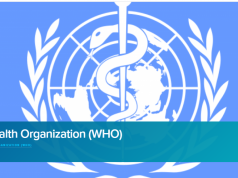New Zealand’s Associate Health Minister Dr. Ayesha Verrall, has been commended for engaging with a number of health entities to gather opinions about the Government’s Smoke-free action plan, before finalizing it. These included organisations, services, advocates, academics, researchers and individuals who have left a mark on their communities.
The co-director of the Aotearoa Vapers Community Advocacy (AVCA), Nancy Loucas, said that ministerial diary records show that Dr. Verrall held teleconferences ahead of releasing the Smokefree Aotearoa 2025 Action Plan discussion document for public consultation. The consulted groups included ASH, Hapai te Hauora, and the NZ College of Physicians.
Loucas said that the fact that these groups were consulted is a very good sign because they are aware of the role vaping products and other nicotine safer alternatives can play in reducing smoking rates. “These groups are very supportive of vaping’s key role in smoking cessation. It’s very encouraging then that Dr. Verrall is prepared to listen to their on the ground experiences before she finalizes her smokefree action plan.”
A missed opportunity
On the other hand, the government has missed out on an opportunity by not recognizing vaping products as effective smoking cessation tools. “The plan makes tobacco less available and less appealing. It fails, however, to properly promote vaping which is proven to be 95% less harmful and is New Zealand’s most effective smoking cessation tool,” said Jonathan Devery, the co-owner of the largest Kiwi-owned vape companies, Alt New Zealand and VAPO.
“As well as crushing tobacco sales, this plan should’ve ramped up the support for publicly-funded ‘Vape to QuitStrong’ smoking cessation programmes. For many years these programmes have been backed by the Ministry of Health, DHBs, and Maori health organisations because they’ve worked incredibly well. Sadly, however, there’s no significant expansion for them in this action plan,” added Devery.
In contrast, the UK has been a leader in endorsing the use of safer alternatives with the aim of reducing tobacco harm, and local smoking rates. Public Health England (PHE), an agency of the UK Ministry of Health, has been recommending switching from smoking to using e-cigarettes for a number of years. While the UK’s National Institute for Health and Care Excellence (NICE) has also recently officially recognized the devices as effective smoking cessation aids.
Non-smoking teens are not taking up vaping
Meanwhile, a 2020 large scale Kiwi study consisting of 27,083 students released in 2020, found that only 0.8% of the participants were daily vapers who’d never smoked before. Additionally, 3.1% of the respondents said they vaped daily, and 37.3% said they had tried.
Looking at data from the annual ASH (Action for Smokefree 2025) survey of students aged 14 and 15, last year Kiwi researchers found that not only are smoking rates on the decline amongst local teenagers, but additionally, vaping is not being taken up by non-smoking teens.













